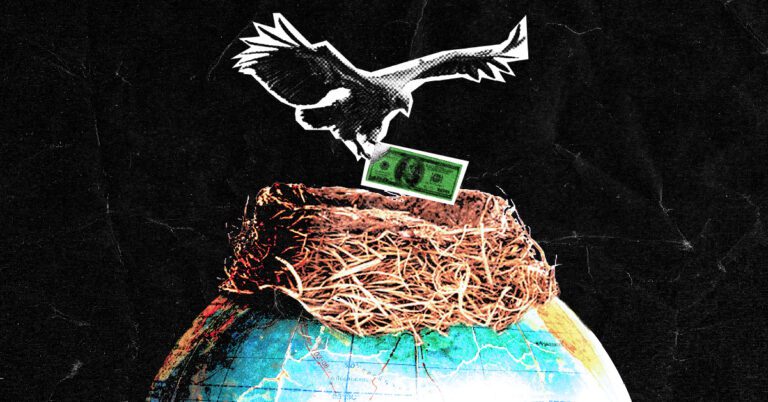Sovereign defaults—when a country fails to meet its debt obligations—are often portrayed as solely the result of economic mismanagement or irresponsible governance within the defaulting countries. However, this narrative is misleading– much of the blame also rests with the predatory practices of vulture funds. These financial entities purchase distressed sovereign debt at a discount and then demand full repayment through aggressive legal tactics, becoming a key driver of debt crises in several countries over the last decade.1 The consequences of their actions are far-reaching, not only for the affected nations but also for global financial centers like New York. Vulture funds leverage New York’s legal system to pursue aggressive litigation against struggling countries, involving taxpayer dollars. While the funds bear the direct costs of lawsuits, New York taxpayers fund the public infrastructure that supports the legal system.
In this post, we’ll explore how vulture funds are the true culprits behind many sovereign defaults, the devastating consequences of their actions, and how New York, as the world’s financial epicenter, is complicit in enabling these practices.
What are Vulture Funds? The Predators of the Global Financial System
Vulture funds are investment firms that specialize in buying distressed sovereign debt at a fraction of its value. When a country is facing economic disaster—often due to political instability, climate or global crises like the COVID-19 pandemic—these funds swoop in, acquiring bonds for pennies on the dollar. They then hold out for full repayment, leveraging legal loopholes to extract as much money as possible from the struggling nation.2
Unlike traditional investors who might work with a country to restructure its debt or find a mutually beneficial solution, vulture funds have no regard for the long-term welfare of the nation. They often refuse to participate in debt restructuring efforts, which would reduce the country’s debt burden and allow for recovery. Instead, they seek to profit from legal battles,3 resulting in years of lawsuits that drain the nation’s resources and prevent it from focusing on essential development or social programs.
For example, the notorious case of Argentina’s battle with vulture funds highlights the devastating effects of these predatory practices. In 2014, after years of negotiation, Argentina defaulted on its debt. Vulture funds, including Elliott Management, then pursued the country through lengthy legal battles. These funds had purchased Argentine bonds for a fraction of their value and demanded full repayment, totaling billions of dollars more than the debt’s original worth.4 The resulting legal costs and financial instability left the country in a state of paralysis, with its citizens suffering from austerity measures and cuts to public services.
Vulture funds thrive because New York’s legal system provides them with a favorable environment. Sovereign debt contracts are often governed by New York law, meaning disputes over repayment are settled in its courts. This legal framework enables vulture funds to secure judgments against debtor nations, exacerbating the economic suffering of the population.5
The Consequences of Vulture Funds’ Predatory Practices
The impact of vulture funds’ predatory tactics extends far beyond financial losses. These funds perpetuate cycles of poverty, economic instability, and social unrest. In many cases, the legal battles initiated by vulture funds prevent debt restructuring agreements that could alleviate the burden on struggling countries. Instead of using available resources to rebuild the economy, governments are forced to divert funds into litigation and interest payments, leading to severe austerity measures.6
How do Vulture Funds’ Predatory Practices Impact Global Economies?
When a country defaults and is embroiled in legal battles with vulture funds, the economy often plunges into deeper crisis. Austerity measures, typically implemented as a condition of debt repayment, lead to cuts in government spending, reductions in public services, and regressive taxation. These measures increase unemployment, lower wages, and contribute to a general decline in living standards.7 Countries like Argentina and Greece have faced prolonged periods of economic stagnation and severe social consequences due to these predatory actions.
How workers and the Labor Market Are Impacted By Sovereign Defaults:
The austerity measures imposed by vulture funds have a devastating impact on the labor market. The government’s reduced ability to provide public services and invest in infrastructure projects leads to widespread job losses, especially in critical sectors like healthcare, education, and public administration. In Argentina, for instance, the aftermath of its debt crisis and subsequent litigation resulted in massive job cuts and wage reductions, leaving millions of workers vulnerable. This destabilization of the labor market often leads to social unrest, protests, and political instability.
Sovereign Default and Cuts to Essential Social Services:
The most tragic impact of vulture fund predation is on social services. As countries are forced to cut public spending to pay back debt or fight legal battles, essential services like healthcare, education, and social safety nets are often the first to be reduced. In Puerto Rico, the island’s debt crisis led to significant cuts in public services. After Hurricane Maria in 2017, debt repayments took precedence over recovery efforts, leaving citizens in dire conditions.8 The poorest and most vulnerable populations are hit hardest, with millions pushed into deeper poverty.
How Vulture Funds Fuel Migration Pressures
In addition to the economic and social impacts, vulture funds also contribute to migration pressures. As nations experience economic collapse, rising poverty, and declining living standards, citizens often face the difficult decision to leave their home countries in search of better opportunities. This migration puts pressure on neighboring countries and regions, further straining resources, infrastructure, and social systems.
The Myth of Defaulted Countries’ Responsibility
It’s important to challenge the prevailing narrative that sovereign defaults are solely the result of poor decision-making or financial mismanagement within the defaulted countries themselves. While there may be cases of mismanagement or corruption, the role of vulture funds in exacerbating these crises cannot be ignored. In fact, the responsibility for the default often lies more with these predatory investors than with the governments of the defaulted countries.
Many of these nations are dealing with a legacy of external economic pressures, including unfair trade practices, climate change, and historical exploitation by wealthier nations. When these countries are further burdened by the relentless actions of vulture funds, which refuse to negotiate in good faith or allow for debt restructuring, they are essentially trapped in a cycle of debt that prevents them from addressing their internal problems.
Vulture funds’ tactics of purchasing distressed debt at a fraction of its value and then suing for full repayment not only harm the economy of the defaulting country but also undermine the international financial system’s integrity. By ignoring the principle of debt relief or restructuring, vulture funds make it harder for countries to recover and grow. This predatory behavior diminishes the ability of countries to prioritize human development or address pressing issues like healthcare, infrastructure, or climate adaptation.
Case Studies of Vulture Fund Predation
Beyond Argentina, Greece, and Puerto Rico, there are several other nations that have been severely impacted by the aggressive tactics of vulture funds:
1. Peru (2000s and 2016)
In the early 2000s, Peru restructured its debt, but vulture funds, including those associated with Elliott Management, purchased distressed Peruvian debt at a steep discount. These funds then pursued legal action to collect the full face value of the bonds, even though Peru was struggling with a burgeoning social and economic crisis. Peru’s debt restructuring in 2016 was partially hindered by vulture funds, leading to an extended period of economic stagnation.
2. Republic of Congo (2017)
The Republic of Congo faced a default on its debt in 2017, and vulture funds seized on this opportunity to demand full repayment. Despite the country’s economic difficulties and resource dependence on oil, these investors pursued litigation that drained Congo’s limited financial resources, hindering its ability to invest in social programs or infrastructure development.
3. Ecuador (2008)
In 2008, Ecuador experienced a default, which was primarily the result of unsustainable borrowing, a crash in commodity prices, and political turmoil. Vulture funds, including those led by Paul Singer’s Elliott Management, purchased the country’s distressed debt and sought full repayment through international courts. These aggressive tactics led to an additional financial burden on Ecuador, preventing it from focusing on long-term economic recovery.
How has vulture fund predation impacted the court system in New York?
New York’s legal system has repeatedly played a crucial role in enabling vulture funds to extract significant payments from struggling nations. In the case of Peru, vulture funds took their claims to New York’s courts,9 making it harder for the government to focus on its development and public welfare priorities. Similarly, in the Republic of Congo, the use of New York’s courts allowed these funds to impose further financial burdens on the country, undermining its ability to prioritize the well-being of its people. Likewise, New York’s courts facilitated vulture funds in extracting massive payments from Ecuador, exacerbating its debt crisis and delaying much-needed economic and social reforms. In each instance, the city’s legal system has contributed to prolonging the economic suffering of these nations.
Which Countries are at Risk of Defaulting in the Next Few Years?
While several countries have already defaulted due to the predatory practices of vulture funds, many more are on the brink of collapse. The following countries face increasing risks of default in the near future:
1. Lebanon
Lebanon, already grappling with severe political instability, inflation, and an economic crisis, is at imminent risk of defaulting in the coming years. The country has accumulated unsustainable debt, and while vulture funds have not yet played a prominent role, their involvement could deepen the crisis.
2. Sri Lanka
Sri Lanka’s debt crisis has been worsening, with high levels of borrowing and declining foreign reserves. The government has already defaulted on its foreign debt, and further defaults are expected unless international creditors—including vulture funds—agree to restructure the debt.
3. Zambia
Zambia’s debt crisis, worsened by the pandemic and declining copper prices, led to a default in 2020. As the country struggles to negotiate with creditors, the risk of prolonged legal action by vulture funds remains high. These funds will likely pursue full repayment in New York courts, pushing Zambia deeper into financial distress.
Impact on New York
If countries like Lebanon, Sri Lanka, and Zambia default, New York will likely become a central battleground for legal disputes between creditors and the governments involved, exacerbating economic distress in these regions. New York-based financial institutions will bear the brunt of the losses, leading to prolonged legal battles in the city’s courts. These conflicts will contribute to global financial uncertainty and hinder the ability of these countries to recover economically.
How New Yorkers are Affected by the Sovereign Debt Crisis
As the world’s financial center, New York plays a crucial role in enabling these predatory financial practices. The city’s courts become the battleground for vulture fund litigation, with devastating consequences for the countries involved. The financial institutions and legal systems of New York benefit from these crises, but the burden falls on global taxpayers, including New Yorkers themselves.
The prolonged legal battles and financial instability caused by these lawsuits are not without local consequences. New York’s resources are taxed by the need for legal infrastructure and services to support these international disputes. Moreover, the costs associated with legal proceedings indirectly affect New York’s taxpayers. The city’s residents fund the infrastructure that sustains these legal processes, contributing to an ongoing strain on public resources. Furthermore, as the migration crisis worsens due to the economic fallout from these practices, New York will face additional challenges related to housing, healthcare, education, and social services for incoming migrants.
A Call to Action: Holding Vulture Funds Accountable
To address the harm caused by vulture funds, New York must reform its legal framework to prevent predatory practices. By implementing a fairer system for sovereign debt restructuring and closing loopholes that allow these funds to operate unchecked, New York can help break the cycle of exploitation and ensure that global finance works for everyone, not just the wealthiest investors.
Footnotes
- https://populardemocracy.org/wp-content/uploads/2025/01/NY-Vulture-Fund-in-Sovreign-Debt-Report-Updated-FINAL.pdf
- https://populardemocracy.org/wp-content/uploads/2025/01/NY-Vulture-Fund-in-Sovreign-Debt-Report-Updated-FINAL.pdf
- https://ssrn.com/abstract=2189997
- https://papers.ssrn.com/sol3/papers.cfm?abstract_id=2630772; https://www.washingtonpost.com/news/business/wp/2016/03/29/how-one-hedge-fund-made-2-billion-from-argentinas-economic-collapse/?noredirect=on
- https://www.newyorker.com/magazine/2018/08/27/paul-singer-doomsday-investor
- https://papers.ssrn.com/sol3/papers.cfm?abstract_id=3456479
- https://populardemocracy.org/wp-content/uploads/2025/01/NY-Vulture-Fund-in-Sovreign-Debt-Report-Updated-FINAL.pdf; https://bclawreview.bc.edu/articles/207/files/63a2b93920c4d.pdf
- https://www.populardemocracy.org/sites/default/files/%5BENGLISH%5D%20PROMESA%20Has%20Failed%20Report%20CPD%20ACRE%209-14-2021%20FINAL.pdf
- https://law.justia.com/cases/federal/district-courts/FSupp2/12/328/2499011/




